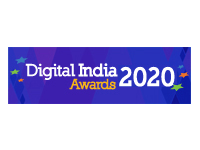Introduction
Gender equality is important for the entire society. If given proper opportunity and encouragement, women have the potential to excel in every field. However, opportunities need to be provided to women so that they are empowered to face the world confidently. Empowerment begins with awareness and subsequently through capacity building.
In 2017 Global Gender Gap Index's list of countries, India ranked 139th in terms of women's economic participation and opportunity. Women's economic empowerment is a prerequisite for sustainable development, pro-poor growth and is about rights and equitable societies. According to a Mckinsey Global Institute study, India could boost its GDP to $2.9 trillion by fully bridging the gender gap in the workplace by 2025, if female workforce participation rate is improved. This would be equivalent to bringing 68 million more women into the non-farm labour force. According to National Sample Survey Organization (NSSO), there were over 30 lakh unemployed women in India in 2012. The National Policy on Skill Development and Entrepreneurship, 2015, mentions the need for gender mainstreaming of training and envisions skill development as a vehicle for women's empowerment. In order to bridge the gap, the policy identifies the need for special delivery mechanisms such as mobile training units, flexible afternoon batches along with local needs based training.
Women Economic Empowerment, A Challenge
Women who are left behind do not easily receive the benefits of prevalent economic development. India needs an employment revolution encouraging women to play their full role in a modern Indian economy. Innovative approaches and partnerships are necessary to scale up women's economic empowerment. Globally, women perform 66% of the world's work and produce 50% of the food, yet they earn only 10% of the income and own 1% of the property. The challenge is to reach out to the most marginalized women and ensure they have access to the opportunities and benefits of economic growth and trade. Skill Satellite Centres can provide an enabling ecosystem near their homes, promoting economic empowerment through technology capacity building and entrepreneurship training.
Skill Satellite Centres
The TDUPW programme of DSIR introduced support for setting up Skill Satellite Centres to enhance women's quality of life by imparting knowledge and skills. Women thrive when their community truly values their work, both at home and in the public sphere. Therefore, this DSIR initiative is committed to working towards gender parity and making women's work visible at all levels of development.
DSIR supports proposals for setting up Skill Satellite Centres in close proximity to rural, tribal, or other needy groups of women. These centres differ from the usual vocational training centres established by various other organizations. In addition to skills training, all women enrolled in the satellite centres will also undergo a short-duration literacy curriculum. They will receive training on specific technical subjects, as well as financial literacy and enterprise development. This comprehensive training ensures that, upon completion, women are not only financially independent but also better equipped to face social challenges. The programme is expected to significantly uplift the socio-economic status of local women.
3.1 Advantages of Skill Satellite Centres
- Saves commuting time and takes care of transportation problem prevalent in the community
- Convenient learning time as women in rural India have very limited time available with them, along with the responsibility of other household chores. DSIR satellite centre will allow them to join such programs according to their convenience and time availability
- Caters to more number of beneficiaries
- Safety assurance to parents, spouses, siblings.
3.2 Objectives of Skill Satellite Centres
- To provide vocational skills to women that give employability to women and enable them to supplement their family income as well as enhancing their self esteem in the society.
- To provide competencies and skills that enable women to become self employed/entrepreneurs.
- Enable women or groups of women (Self Help Group mode) to take up employment or income generation programmes of their own.
- To help them learn new skills that will improve their efficiency and productivity.
- Mobilize women in viable groups and render facilities such as access to credit, acquisition of productive assets etc.
3.3 Support by the Skill Satellite Centres
- Customised training, among other tools and resources
- Trained mentors who will help women entrepreneurs overcome business challenges
- Capacity building through educational programs, accelerated strategies to access finance and markets, innovation, and bootstrapping techniques
- Education on how to use technology for enhancing productivity and reducing drudgery.
- Opportunity to develop a business model.
- Sector-specific exposure.
- Networking opportunities
Possible Sectors for technology intervention and Dissemination
- Pottery [Production of terracotta pottery items]
- Health & Hygiene [Small units for producing low cost sanitary napkins]
- Sericulture [Mulberry Cultivation, Cocoon Rearing, Reeling of Yarn]
- Food Processing and Nutrition [Value added farm produce, Fortified foods, Bakery]
- Agro Processing [Tissue culture, Stevia farming]
- Marine Product Processing [Fisheries, pearl culture]
- Handicrafts [Hand made home decor items, hand made papers etc.]
- Textile [Khadi, block printing etc.]
Target Groups
The scheme is intended to benefit women who are in the age group of 18 years and above, for skilling purpose.
Eligible Organizations
The Organizations in the Government and non-Government sectors working on areas related to development/dissemination of technologies for women with adequate experience in the field, are eligible for financial assistance. Organizations seeking assistance under the programme should belong to one of the following categories:
- Institutions receiving annual recurring grants from the Central or State Government Agencies, Indian Universities, academic institutions, R&D institutions and Institutions having a distinct legal entity (as per Rule 228 of GFR 2017).
- Institutions registered under the Societies Registration Act.
- Trusts registered under Indian Trusts Act.
Duration
A particular proposal for Skill Satellite Centre may be formulated initially for a maximum duration of 36 months, including time set aside for post-training activity evaluation. Training courses/ modules shall typically be of three month duration and with a maximum duration of six months for a course in exceptional cases. At the expiry of initial period, proposal for continuation may be submitted for consideration along with output/outcome report and necessary justification.
Funding Norms
The financial assistance will be subject to the following:
- Training is expected to be for six days each week, with a training time of six hours per day, exclusive of breaks for travel, lunch i.e. a minimum of 432 hours and 864 hours for 3 and 6 months courses respectively. The focus should be on hands on training and not on assessment or certification. 100 to 150 women should be trained per year.
- The cost of providing refreshments during trainings may not exceed Rs. 75 per day per beneficiary.
- Project costing may include heads like mobilization of beneficiaries, preparation of curriculum, equipment, raw material, and teaching aids. Acquisition costs of equipment may form a part of the proposal, but may not exceed 25% of the proposal cost supported by DSIR.
- Utilization Certificate and Statement of expenditure will have to be submitted for release of subsequent grant. The organization/ institution shall record a certificate to the effect that the expenditure has been incurred in accordance with the sanctioned grant.
- The persons employed in the Skill Satellite Centres will be treated as the employees of the organization/ institution and not of the Government of India and the conditions of their service will be governed in accordance with the rules and orders of the organization applicable to such persons.
- DSIR Skill Satellite Centres will not finance any capital expenditure on lands or buildings.
- On completion of the duration of Skill Satellite Centres, the organization/ institution shall submit final report along with supporting documents such as photographs and utilization certificate for the grant-in-aid.
- The applicant organization will issue a certificate to the trainees on the course imparted after their successful completion of the training.
- The applicant organization will submit the proposal in the prescribed application format with necessary documents as per the guidelines.
- Unspent amount of grant-in-aid released by DSIR will be refunded to DSIR.
- The unsatisfactory performance/non-performance of the organization with respect to targets/deliverables would lead to refund of grant-in-aid released along with interest accrued to DSIR.
- DSIR reserves the right to terminate the Skill Satellite Centres if it finds that its implementation is unsatisfactory or improper.
Reports to be Submitted by the Applicant Organisation
While submitting a project proposal for Skill Satellite Centre, the applicant organisation must submit the following reports along with the application :
- Baseline survey report of the area where Skill Satellite Centre is to be established.
- Cost Benefit analysis of the Skill Satellite Centre.
- Target women groups who will benefit from the Skill Satellite Centre.
- Details of course curriculum for the skills training.
- Likely business enterprises that the Skill Satellite Centre will give rise to.
- The likely business model to make the Skill Satellite Centre sustainable.
- The layout map to be provided showing an earmarked space for the Skill Satellite Centre.
GUIDELINES AND APPLICATION FORMAT
Click Here for Skill Satellite Centres Guidelines and Application Format Click Here (Download 305KB)![]()
![]() [27/12/2021]
[27/12/2021]
For any other details, you may contact
Dr Vipin Chandra Shukla,
Scientist G, Head A2K+
Department of Scientific & Industrial Research (DSIR)
Technology Bhawan, New Mehrauli Road, New Delhi 110 016
Telephone: (011) 26859460, 26590463
Email: vipin[dot]shukla[at]gov[dot]in
On this website in all email addresses [at] = @ and [dot] =
Last Updated : 14/06/2024





















